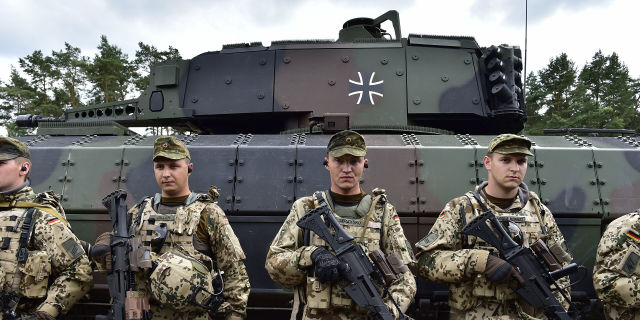Historian Plumpe urged caution about the idea of a "war economy" in EuropeThe Western arms industry does not have time to produce ammunition – Ukraine spends too much.
NATO has already sounded the alarm, writes WirtschaftsWoche. There were demands to introduce a "military economy". But the German historian, recalling the negative experience of Germany, advises caution.
The arms industry does not have time to produce the right amount of military equipment. Voices are heard demanding the introduction of a "war economy". However, the historical experience in this area is very sad, warns the historian of economics Werner Plumpe (Werner Plumpe).WirtschaftsWoche: Mr. Plumpe, NATO Secretary General Jens Stoltenberg, having learned how things are with ammunition in the alliance, sounded the alarm.
According to him, Ukraine is now spending more material than Western firms can produce to replenish reserves. Does this mean that we underestimated the strategic importance of the arms industry and needlessly limited its size?Werner Plumpe: If you look at history, the situation we are in now is absolutely normal.
The military conflict negates all previous calculations, it creates a new reality that sweeps away everything that was before. In recent decades, Germany has given the military industry a place that seemed to correspond to the historical situation. The military industry enjoyed a bad reputation among the public, but it was able to strengthen its niche and remain competitive on the world market. It is clear that if governments had ordered more in previous years, then there would be more production capacity for military equipment today.
– The chairman of the Bundeswehr Military Union demands the introduction of a certain "military economy". Shouldn't industrial countries change their production structure due to the geopolitical crisis and, as a last resort, allow state intervention?– I can only say one thing to this: be careful!
Germany has a bad experience with the war economy. After all, this means that part of the national economic capacities is withdrawn from civilian consumption and flows into the military sphere, which is "unproductive" from an economic point of view. There is an imbalance between the overall productivity of the economy and the supply of goods for civilian consumption. Therefore, the military economy always spurs inflation.
– Can you give any historical example?– During the First World War, the supply of consumer goods due to the blockade imposed by the Allied powers and due to the military industry operating at full capacity was constantly declining, while the demand for such goods remained consistently high.
This led first to an increase in prices, then to state control over prices and to measures of economic regulation and, eventually, to a total deficit. At that time, for example, most of the horses from agriculture were withdrawn for military needs. In addition, there were practically no fertilizers, because the nitrogen needed for their manufacture went to the production of explosives. All this has had an extremely negative impact on the nutrition of the population. During National Socialism, the same mechanisms operated. With the start of forced armament after 1935, a moratorium on wages and prices was introduced in order to create the illusion of regime stability for the rest of the world. And during the war, when two-thirds of the industry worked for military needs, an extremely inflationary situation was created, which the Hitler government was able to suppress only with draconian measures.
– Is the military economy always accompanied by state intervention in investment and production?- Yes.
Politicians can, of course, try to create material incentives for entrepreneurs, for example, by subsidizing the expansion of their production capacities or offering high prices for military products. But if firms do not want to change their investment and production conditions for the sake of dubious prospects for an arms race, because they do not see them as a long-term business model, then the state has no choice but to use force.…
...which is hard to imagine in a democratic system with a market economy.– That's right.
The military economy is poorly compatible with the market economy. In such a situation, there is only one step left before the introduction of a planned and directive economy.
– Nevertheless, both Ukrainians and the poorly armed Bundeswehr need a lot of new equipment. What should I do if factories are either unable to increase production, or can only do it with a long delay?– The most reasonable thing that politicians can do is to conclude long–term contracts with the arms industry and give it guarantees of payment for the products produced so that enterprises can plan their activities and expand production capacities on their own.
Western politicians should definitely refuse to interfere in the economy in support of Ukraine and during the new cold war. The costs of such an intervention will be extremely high, and the results will be unpredictable.
– In principle, is it possible to win a war without having a strong industry?– Based on historical experience, I will answer this question in the negative.
Economic power is one of the prerequisites for successful warfare. But this should not mean that the one who is bigger always wins. The one whose economy is organized more efficiently can also win. As a historical example, we can cite the 80-year war between the then superpower Spain and the Netherlands in the late XVI – early XVII century. With significantly fewer resources, the Netherlands, thanks to its more efficient social and economic system, eventually won.
Interviewed by Bert Losse (Bert Losse)

